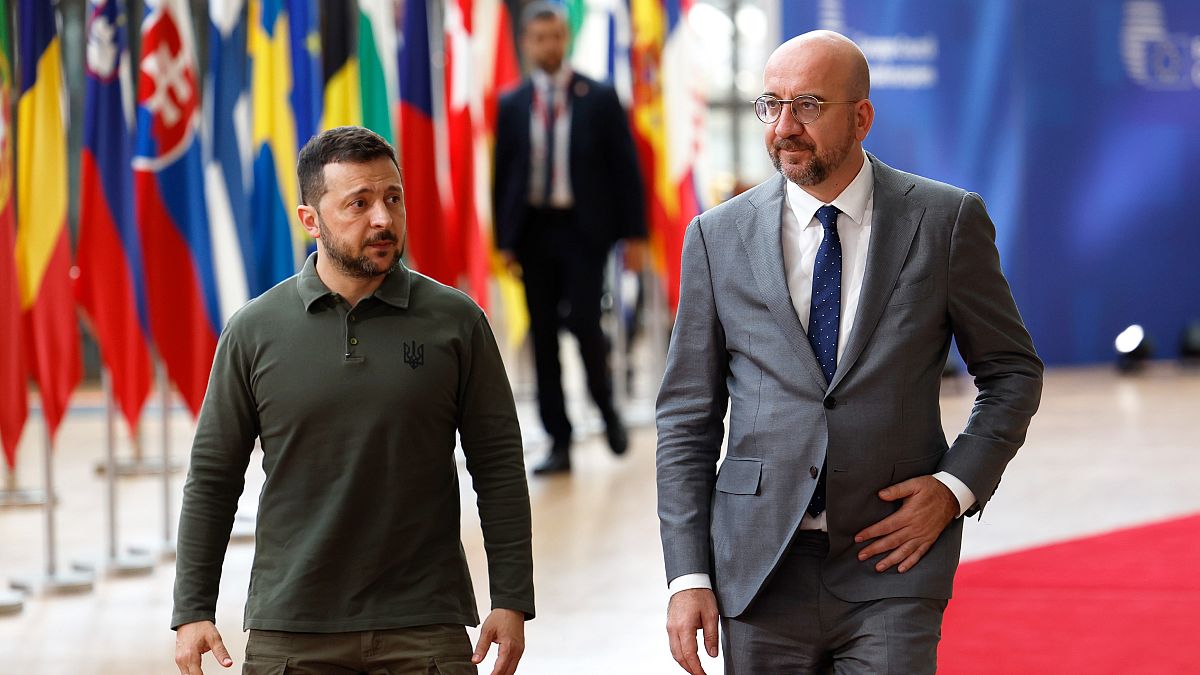Policymakers are bullish about the need to step up in the face of Russian aggression and potential US apathy – but their voters aren’t so sure.
People in major European countries such as France, Italy, Spain and the UK don’t favour increased defence spending, a poll by the European Council on Foreign Relations has found.
That may pose a challenge as the continent seeks to bolster its military in the face of the war in Ukraine, and faces up to the prospect of a US less committed to transatlantic security.
The results, based on polls of 19,500 adults in 15 countries, also show many EU citizens sceptical about the bloc expanding to the east, just days after Brussels began the formal process of membership talks with both Ukraine and Moldova.
“European governments are unlikely to receive public support for direct military involvement,” said the policy brief by Ivan Krastev and Mark Leonard.
Kyiv and Brussels are “divided about the purpose of EU enlargement”, with Ukrainians saying membership would recognise their struggle, while EU nationals see it as part of an eventual settlement deal, they add.
The 25 June opening of formal membership talks with Ukraine and Moldova was described by European Council president Charles Michel as “a proud moment for both nations and a strategic step for the EU”, representing the start of negotiations that can in practice take years.
Scepticism about increased defence spending was highest in Italy, where over 62% said the government shouldn’t splurge if that means cutting other priorities like health or education.
Interestingly, in Germany – a country pacifist since the Second World War – a majority of those expressing a preference favoured higher military spending – though there’s clearly an anti-war mood among voters too, courted by parties such as left-wing Sahra Wagenknecht Alliance and Alternative for Germany on the right.
The poll comes just before leaders from the NATO military alliance gather in Washington, DC, amid fears that a second Donald Trump presidency might not show the same support to Ukraine, or indeed Europe.
An increasing number of NATO allies are now meeting a target to spend 2% of GDP on defence, and Ursula von der Leyen has promised to make military policy a key plank of her hoped-for second mandate as head of the European Commission.
But another main plank of her pro-Ukraine plans – allowing it to join the EU – also faces public apathy.
Over half of Germans think Ukraine’s membership is a bad idea, and more in France oppose than support the move, with sceptics citing security, corruption and cost among their concerns.
Neighbours such as Poland, Estonia and Sweden, as well as Spain and Portugal, are rather more positive, saying Ukraine is culturally part of Europe and that it could help end the war.
The EU has pledged to send a million shells to Ukraine to help in the war effort – while France’s Emmanuel Macron has even hinted at going further by sending French troops to join the fight.
But, with legislative elections due to be finalised this Sunday, Macron’s leadership is under threat from a resurgent National Rally party – whose far-right leader, Marine Le Pen, has previously expressed her admiration for Russia’s Vladimir Putin and his foreign policy.

